The Debunking Handbook: now freely available for download
Posted on 27 November 2011 by John Cook
Update Oct. 14, 2020:
The Debunking Handbook is now available in an extensively updated version written by Stephan Lewandowsky, John Cook, Ulrich Ecker and 19 co-authors. Read about this new edition in this blog post: The Debunking Handbook 2020: Downloads and Translations
The Debunking Handbook, a guide to debunking misinformation, is now freely available to download. Although there is a great deal of psychological research on misinformation, there's no summary of the literature that offers practical guidelines on the most effective ways of reducing the influence of myths. The Debunking Handbook boils the research down into a short, simple summary, intended as a guide for communicators in all areas (not just climate) who encounter misinformation.
The Handbook explores the surprising fact that debunking myths can sometimes reinforce the myth in peoples' minds. Communicators need to be aware of the various backfire effects and how to avoid them, such as:
It also looks at a key element to successful debunking: providing an alternative explanation. The Handbook is designed to be useful to all communicators who have to deal with misinformation (eg - not just climate myths).
The Authors:
John Cook is the Climate Change Communication Fellow for the Global Change Institute at the University of Queensland. He created and runs Skeptical Science and co-authored the book Climate Change Denial: Heads in the Sand with environmental scientist Haydn Washington. In 2011, Skeptical Science won the Australian Museum Eureka Prize for the Advancement of Climate Change Knowledge.
Professor Lewandowsky is an Australian Professorial Fellow and a cognitive scientist at the University of Western Australia. He received a Discovery Outstanding Researcher Award from the Australian Research Council in 2011. His research examines people's memory, decision making, and knowledge structures, with a particular emphasis on how people update information in memory. He has published over 120 scholarly articles, chapters, and books, including numerous papers on how people respond to misinformation. (See www.cogsciwa.com for a complete list of scientific publications.) Professor Lewandowsky is an award-winning teacher and was Associate Editor of the Journal of Experimental Psychology: Learning, Memory, and Cognition from 2006-2008. His research has been funded continuously since 1990 by public agencies in 5 countries, but he has no commercial interests of any kind. He has also contributed numerous opinion pieces to the global media on issues related to climate change "skepticism" and the coverage of science in the media. A complete list of his public essays can be found at http://www.shapingtomorrowsworld.org/inthemedia.htm, which is a blog run by academics from W.A.'s three major universities.
Translations
Since first being published in 2011, The Debunking Handbook has been translated into the following languages:
Dutch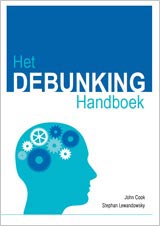 |
French |
|||
German |
Hungarian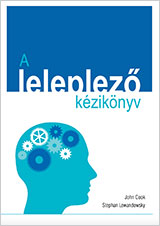 |
Icelandic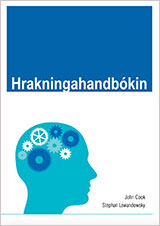 |
||
Indonesian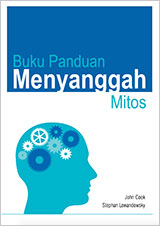 |
Italian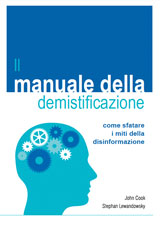 |
Polish |
||
Portuguese |
Spanish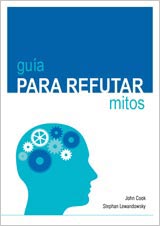 |
Swedish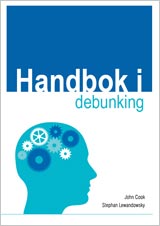 |
||
Turkish |
Update: Open Access Slideshow
In collaboration with Ullrich Ecker from the University of Western Australia, we have put together the “Myth Debunking Slideshow” (Ecker, Cook & Lewandowsky, 2012) - an open-access slideshow summarizing both the basic research on misinformation and recommendations on how to deal with misinformation in practice. The presentation is designed in popular Microsoft PowerPoint software, and is licensed under Creative Commons, meaning it is free to use, adapt and distribute under most conditions.
Update June 2017: Some news about The Familiarity Backfire Effect
Here is an excerpt from Stephan Lewandowsky's blog post Claiming that Listerine alleviates cold symptoms is false: To repeat or not to repeat the myth during debunking?
"[...]Recent research, however, has not found a familiarity backfire effect under conditions where it was expected. In a nutshell, two articles published by colleagues and I (with Ullrich Ecker and Briony Swire, respectively, as lead authors) found evidence for familiarity-based processing but failed to find a familiarity backfire effect.
You can read more about this latest research in a series of three blog posts on Shaping Tomorrow's World:
- Can Repeating False Information Help People Remember True Information? - published on June 19, 2017 by Tania Lombrozo
- Qualifying the Familiarity Backfire Effect - published on June 20, 2017 by Briony Swire
- Familiarity-based processing in the continued influence of misinformation - published on June 21, 2017 by Stephan Lewandowsk
Although our experiments showed that familiarity-based processing does not lead to a backfire effect in some cases (even when it is expected to occur), our studies remain moot on whether familiarity backfire effects will occur in other circumstances.[...]"
This post has been cross-posted at Shaping Tomorrow's World.































 Arguments
Arguments





















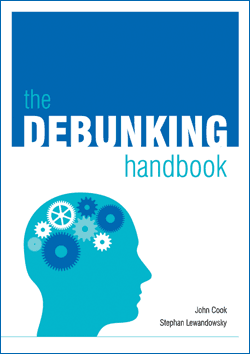
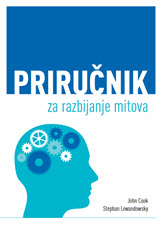









Hello, the link to the english version of the debunking handbook does not seem to work for me? cheers
[DB] Curious. Try this one:
http://www.skepticalscience.com/docs/Debunking_Handbook.pdf
Fantastic information but I would also like to request either a Kindle version or at least abandon the two column format. It's pretty hard to read this pdf on a Kindle or tablet.